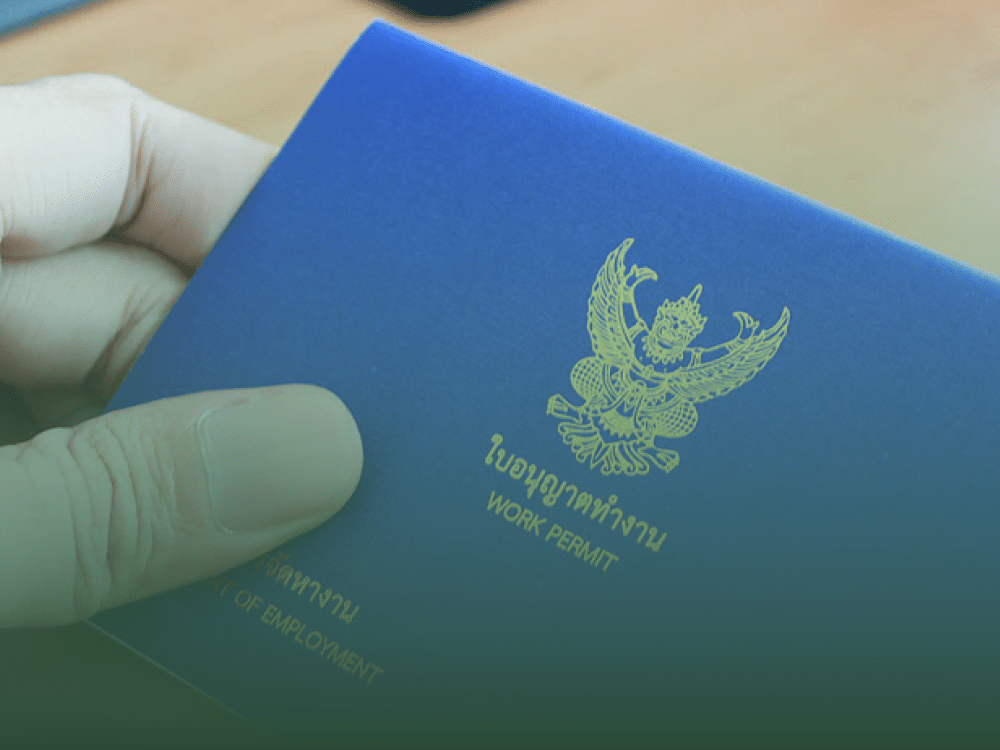Address
Boat Avenue, Thalang, Phuket
Thailand
Work Hours
Monday to Friday: 9 AM - 6 PM
Navigating the process of obtaining a work visa in Thailand can be complex. This guide simplifies the Non-Immigrant B Visa process, detailing the necessary steps from securing a job offer to gathering the right documents.
It can be a fulfilling experience to work in Thailand, an exciting and culturally diverse nation, but getting a work visa in Thailand is a process that must be navigated. This thorough guide will walk you through the process if you’re a foreigner looking for work in the Land of Smiles.
One of the most important steps in getting a work visa in Thailand is getting a job offer. This first stage lays the groundwork for the rest of your journey because your potential employer will be a major sponsor for your visa application.

Research extensively to find companies in Thailand that match your skills, knowledge, and career objectives. Look through job websites, official company pages, and professional platforms to compile a roster of potential employers.
Thailand provides a range of visa options, and one of them is the work visa in Thailand and it is important to choose the appropriate one. If you plan to work in Thailand, the Non-Immigrant B visa is usually necessary. This visa is granted to individuals who are looking for employment or engaging in business activities in the country.
Thailand provides a range of visas to meet various needs, including education, retirement, and tourism, in addition to the Non-Immigrant B visa which is suitable for employment and business purposes. To effectively choose the right visa, it is important to have a detailed understanding of the specific requirements and eligibility criteria for each option.
Once you arrive in Thailand with a Non-Immigrant B visa, the next important milestone on the path to employment is starting the process of applying for a work visa in Thailand. This crucial document is necessary for legally participating in work-related activities in the country, and working closely with the employer is vital in successfully navigating through this complex procedure.
Work visa in Thailand like Non-Immigrant B visa are considered as the work permit application process as a crucial step. They collaborate closely with their employers and gather all the necessary documents to smoothly transition from visa holders to officially recognized professionals.
When you come to Thailand with a Non-Immigrant B visa, you’re getting ready to work. This visa is for people who want to work or do business in Thailand, and it helps you get the paperwork needed to work legally.
After carefully collecting all the required documents for the work visa in Thailand application, the next important step is to submit them to the relevant authorities in Thailand. The Ministry of Labor plays a key role in this process, as it is responsible for evaluating and approving the application. Once approved, individuals can legally participate in professional activities in the country.
The process of submitting the necessary paperwork for a work permit is a crucial step in the process of legally working in Thailand. By following the guidelines set by the Ministry of Labor and staying updated on the progress, people can confidently navigate through the bureaucratic procedures.
Make sure you have all the necessary documents ready for submission. This includes your passport, Non-Immigrant B visa, educational and professional certificates, health certificates, and the employer’s letter. Double-check to ensure everything is organised and prepared.
The Ministry of Labor in Thailand is responsible for managing work visa in Thailand. To apply for a work permit, you can submit your documents at the regional office or through the Ministry’s online portal.
Starting a professional journey in Thailand as a foreigner requires following a structured process to get a work visa. Knowing the details and common questions about this process is crucial for a smooth transition into the Thai job market. The first step is to secure a Non-Immigrant B visa, designed for those looking for work or doing business in the country. Necessary documents like passport, Non-Immigrant B visa, educational and professional certificates, health certificates, and an official letter from the employer stating the need for the work permit are essential for the application.
The employer usually begins the work permit application, so a close partnership between the employer and employee is vital. This collaboration ensures that all required documents are carefully gathered and submitted to the Ministry of Labor, the main authority handling work permits in Thailand. The Ministry of Labor evaluates the individual’s qualifications, the necessity of the work permit for the specific job, and adherence to legal regulations.
The first step is securing a Non-Immigrant B visa, which is specifically designed for individuals seeking employment or engaging in business activities in Thailand.
Key documents include the passport, Non-Immigrant B visa, educational and professional certificates, health certificates, and an official letter from the employer expressing the need for the work permit.
The employer typically initiates the work permit application on behalf of the employee. Close collaboration between the employer and employee is crucial for a successful application.
The process may take a few weeks, encompassing the time needed for visa approval, document compilation, and the Ministry of Labor’s assessment of the work permit application.